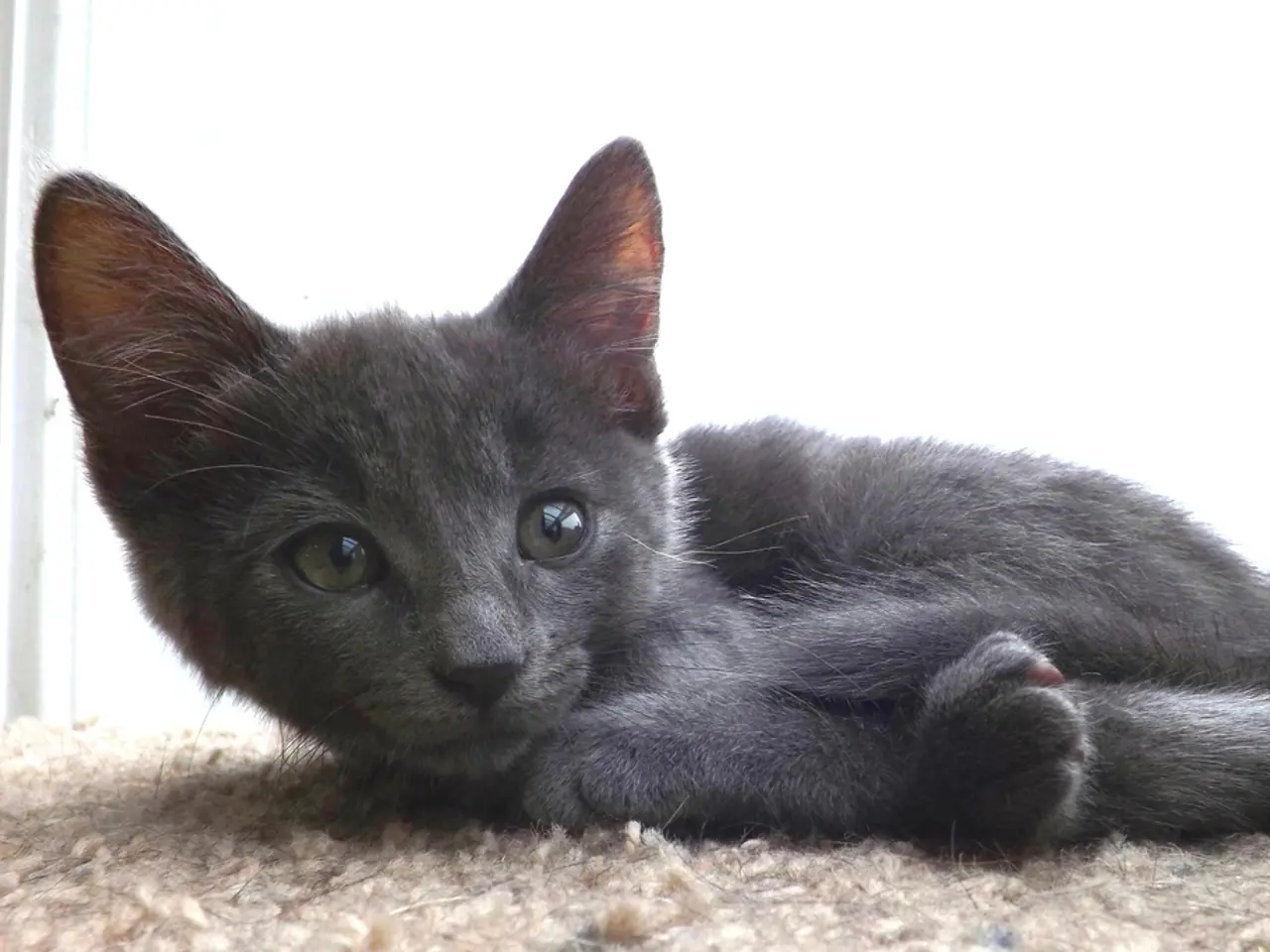Common Ailments in Kittens: Symptoms and Remedies
In welcoming a new kitten into your home, it's essential to be prepared for potential health issues. Kittens, with their developing immune systems, are more susceptible to common illnesses such as upper respiratory infections (URIs) and feline panleukopenia (feline distemper).
One of the first signs of illness in kittens can be lethargy, congestion, nasal or eye discharge, sneezing, or a bloated belly. These symptoms can indicate an upper respiratory infection, which is common in kittens and can be caused by viruses like feline herpesvirus and feline calicivirus. Kittens may also display a lack of appetite, fever, or labored breathing, which require prompt veterinary attention.
To manage these illnesses, it's crucial to take your kitten to a veterinarian for a thorough examination. The vet will check for parasites, screen for congenital health issues, and test for transmissible diseases like feline leukemia and FIV. Treatment may involve medications prescribed by the vet, supportive care, and ensuring the kitten rests in a stress-free environment.
Preventive care is equally important. Start a vaccination schedule around 6–8 weeks of age, covering key diseases like FVRCP and rabies. Maintain parasite prevention against fleas, ticks, and worms. Monitor your kitten closely for any signs of emergency conditions such as foreign body ingestion, injuries, or fading kitten syndrome.
Other common issues in kittens include ear mites, roundworms, hookworms, and tapeworms. Ear mites, transmitted by a contagious mite called Otodectes cynotis, can cause dark, coffee ground-like ear discharge, intense itching and scratching, frequent head shaking, irritation, fur loss, sores, and scabs around the ears and head.
Roundworms, the most common intestinal parasites in cats, especially kittens, can cause lethargy, vomiting, alternating diarrhea and constipation, bloated belly, poor growth, dull coat, and intestinal obstruction. Hookworms and tapeworms can cause similar symptoms, including lethargy, poor growth, bloated belly, vomiting, diarrhea, dark and tarry feces, and anemia.
Navigating kitten illnesses can be stressful, but options like pet insurance and CareCredit credit card can help manage vet expenses. Pet insurance can help offset the costs of a kitten's veterinary bills, while CareCredit is a dedicated pet health and wellness credit card that offers flexible financing options for routine visits, vaccines, emergency care, medications, and more.
In conclusion, regular vet visits and preventive care provide the best foundation for identifying and managing common illnesses effectively in a new kitten. Changes in health or behavior are often the first sign of illness in kittens, so it's crucial to stay vigilant and seek veterinary care immediately if you notice any concerning symptoms. With proper care and attention, your kitten can grow into a healthy, happy companion.
- Mental health is crucial for pet owners as well, considering the stress that may come with a kitten's health issues. One can turn to science and health-and-wellness resources for coping strategies.
- A pet health insurance plan could offer significant financial relief when managing a kitten's health issues, as it can cover a portion of the veterinary bills for common ailments like URIs, feline herpesvirus, and feline calicivirus, among others.
- In addition to pet health insurance, taking advantage of specialized credit cards, such as CareCredit, designed for pet health and wellness, can provide flexible financing options for routine visits, vaccines, emergency care, medications, and more, making management of a kitten's healthcare costs more manageable.




